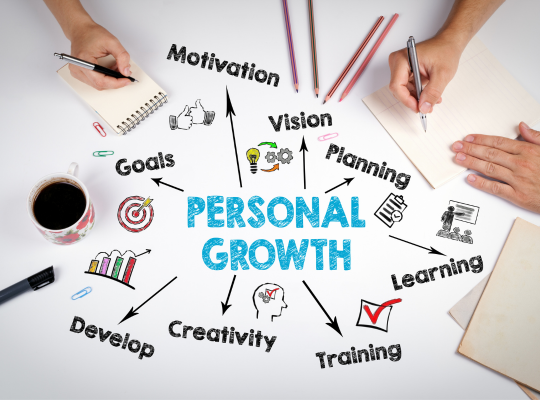In today’s business environment, organizations are increasingly focusing on the development of their people to stay competitive and innovative. Coaching has emerged as a go-to tool to boost performance, build leadership capability and improve team dynamics. However, organizations are caught at a crossroad when they have to decide between team coaching vs individual coaching. There are advantages to both approaches, but understanding their differences will help you determine which method suits the objectives of your organization.
In this blog, we will discuss how team coaching and individual coaching are different from each other, the unique advantages that they hold for an organizational approach, and which one could possibly suit your organization better.
What is Team Coaching?
Team coaching is typically more about the dynamics or chemistry of a whole team–the communication and collaboration. The main point is to set out common targets for the team, improve collaboration and create a sense of shared mission. A coach takes all teams under their wing, helping you identify challenges, work through problems and engage the team to tap into its strengths to achieve goals.
Key components of team coaching include:
- Group dynamics: Understanding how individual behaviors and personalities impact team functioning.
- Collaboration and communication: Enhancing the ability of team members to work together efficiently and effectively.
- Shared vision and goals: Aligning team members with a collective purpose and common objectives.
- Conflict resolution: Addressing interpersonal challenges and creating strategies for resolving issues within the team.
What is Individual Coaching?
Individual coaching, on the other hand, is a process that aims to develop its subject on an individual level. A personal coach spends time with an employee to help them address certain issues, enhance their strengths and set some specific career or life goals. While individual coaching centers around resolving and boosting the performance, background, and mental condition of a person in their work environment.
Key components of individual coaching include:
- Personal development: Addressing the individual’s personal goals, challenges, and growth opportunities.
- Skills enhancement: Helping individuals improve their leadership, communication, or technical skills.
- Self-awareness: Encouraging greater awareness of personal strengths, weaknesses, and values.
- Behavioral change: Working on specific behaviors that need to be adjusted for professional success.
Benefits of Team Coaching
- Improved Team Collaboration and Synergy: Team coaching improves how people communicate with each other, the collaboration within a team also gets stronger. It fosters a sense of team culture and collaboration, where employees complement each other in various capacities thereby solving problems or making decisions more effectively.
- Shared Accountability: In team coaching, everyone is responsible for each other. Through common objectives, the coach cultivates a culture of accountability for team success that promotes collaboration and support for one another.
- Conflict Resolution: Teams frequently deal with differences in opinions, work procedures or characters. Being on a team is not without its disagreements, but that is where team coaching comes in and gives the opportunity for people to come together, talk freely about their issues and get to know how their peers are operating so they can respect different perspectives.
- Alignment of Goals: Team coaching aligns the team’s individual goals with the broader organizational objectives, ensuring that everyone works towards the same mission. This alignment helps avoid confusion, duplication of efforts, and miscommunication.
Benefits of Individual Coaching
- Personalized Focus: Individual coaching breaks the usual group barrier which means that every session is about something personal. No matter if they need to develop leadership skills, boost their emotional intelligence or strengthen a certain skill — individual coaching provides a tailored strategy.
- Increased Self-Awareness: One on one coaching increases the level of self-awareness in your employees, which is essential for growth both professionally and personally. Coaches help individuals see their strengths, weaknesses, and blind spots so that they can make more well-rounded choices and perform better.
- Enhanced Leadership Skills: For companies wanting to build their leadership pipeline, individual coaching is a valuable tool in developing strong leaders by honing skills like decision-making, emotional intelligence and strategic thinking.
- Confidence Building: Individual coaching offers continued support and feedback, which helps to build employee confidence. Coach guides people to set personal goals and to work towards them, resulting in a feeling of success and empowerment.
Which is Right for Your Organization?
On a final note, the choice between team coaching or individual coaching is dependent on your organizational needs, goals and challenges. Below are some aspects to consider while selecting the appropriate approach:
- When to Choose Team Coaching:
- Team Dynamics and Collaboration Issues: If your organization is experiencing communication breakdowns, low morale, or a lack of collaboration within teams, team coaching can help improve group cohesion and collaboration.
- Alignment of Team and Organizational Goals: If your teams are not in alignment with that of the vision or goals within the broader organization, team coaching offers them a bigger picture.
- Need for Collective Problem-Solving: When your teams confront more complicated challenges that require the voice of all members, team coaching supports the process to solve and make decisions together.
- When to Choose Individual Coaching:
- Personal Development Needs: If you have individuals within your organization who are seeking to develop their leadership skills, increase self-awareness, or address specific performance issues, individual coaching can provide the personalized guidance they need.
- High-Potential Employees: If your goal is to develop high-potential leaders, individual coaching can give these employees the tools, skills and performance they need as preparation for a leadership position.
- Personalized Feedback and Goal Setting: Individual Coaching: When you need to provide specific support and feedback to certain employees, individual coaching allows for personalized goal setting.
Conclusion
Both team coaching and individual coaching are powerful tools for enhancing organizational performance, but they serve different purposes. Team coaching is best suited for creating collaboration, resolving disputes, and aligning team goals with organizational vision. Individual coaching, on the other hand, is ideal for personal development, leadership and making employees more confident and effective.
It boils down to the specifics of your organization and what challenges or goals you are dealing with, so ultimately a mixture of both may be the best approach. Both individual as well as team coaching are strategies to help your employees succeed and they work towards sustainable growth for your organization.Team coaching can be your ally in creating a directed and highly motivated group of individuals aligned with individuals as well as the organizational objectives. Our team-focused program “Envision New Horizons” is all about building powerful teams and giving them clarity about why they work and how they work.







